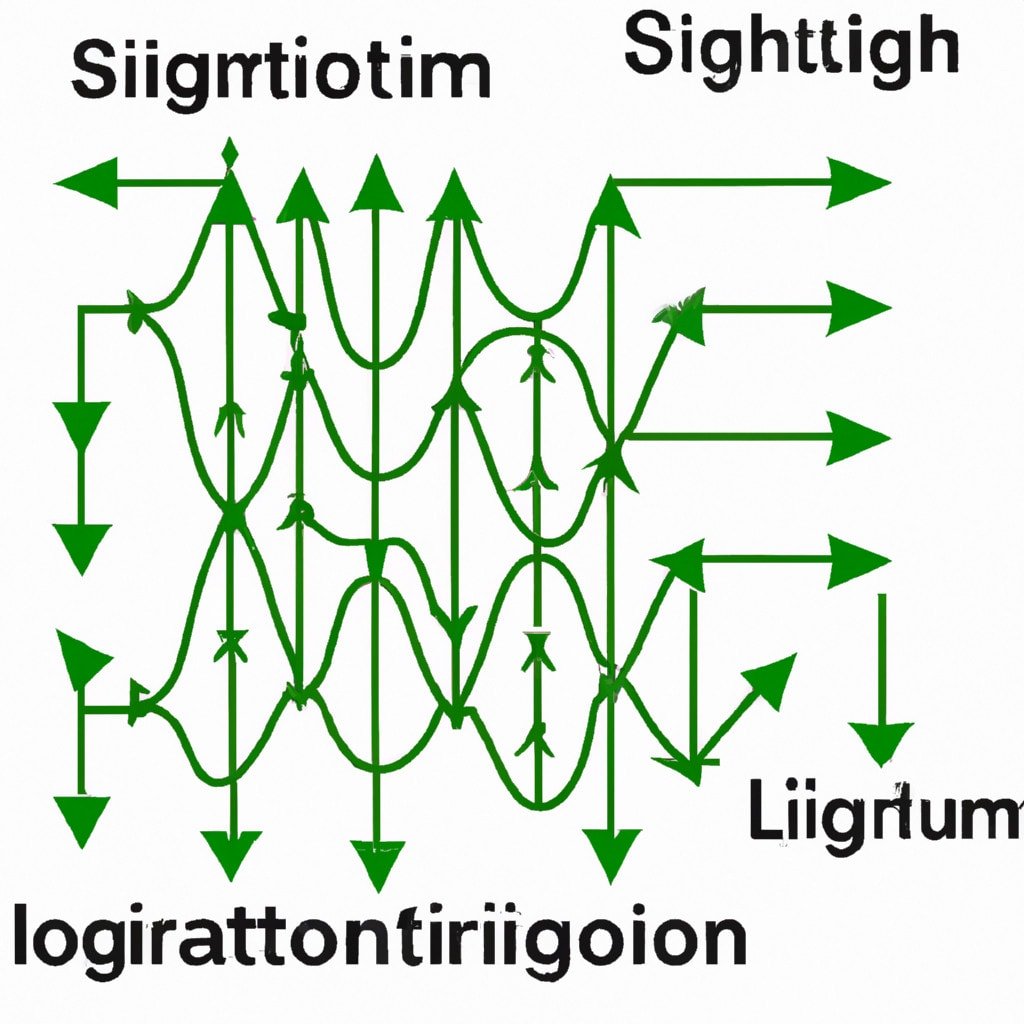Title: What is Algorithm Engineer: Unlocking the Secrets of a Fascinating Career
Introduction
Have you ever wondered how computers solve complex problems, make accurate predictions or even recommend your favorite songs? Behind these impressive feats, there’s always a skilled professional who makes it all possible. In this article, we’ll explore the intriguing world of algorithm engineers and answer the burning question: _what is algorithm engineer?_ So, buckle up and let’s dive into this fascinating world of algorithms and problem-solving.
H2: What is Algorithm Engineer?
Algorithm engineering is a specialized field within computer science that focuses on designing, analyzing, implementing, and optimizing algorithms to solve complex problems efficiently. An algorithm engineer is responsible for developing innovative solutions and algorithms that can be used in various applications such as artificial intelligence, data analysis, cryptography, and many more.
These experts combine their deep understanding of mathematics, computer science, and programming to devise efficient algorithms that meet the desired objectives while minimizing resource consumption such as processing time, memory usage, and power consumption.
H3: Core Responsibilities of an Algorithm Engineer
* Designing Algorithms: One of the primary tasks of an algorithm engineer is to design new algorithms or improve existing ones to address specific problems or requirements. This involves clearly defining the problem, determining the appropriate data structures, and outlining the steps to reach the solution.
* Analyzing Algorithms: Algorithm engineers must rigorously analyze their designs to ensure they meet the desired objectives, are efficient, and have minimal side effects. This may involve evaluating the algorithm’s complexity, scalability, and performance under various conditions and constraints.
* Implementing Algorithms: Once an algorithm has been designed and analyzed, it needs to be implemented using a suitable programming language. An algorithm engineer must possess strong coding skills and should be proficient in multiple programming languages to ensure the best implementation.
* Optimizing Algorithms: The efficiency of an algorithm is crucial. Therefore, an algorithm engineer must continually find ways to optimize and refine their algorithms to improve performance or adapt to changing requirements and constraints.
H2: Skills Required for an Algorithm Engineer
To excel in the field of algorithm engineering, professionals must possess a unique blend of skills and knowledge. Some key abilities include:
* Strong Mathematical Background: A solid foundation in mathematics, particularly in areas such as linear algebra, calculus, combinatorics, and graph theory, is essential for designing effective algorithms.
* Problem-solving Abilities: Algorithm engineers must be able to think critically, break down complex problems into smaller components, and develop creative strategies to find solutions.
* Programming Expertise: Proficiency in multiple programming languages and paradigms, as well as a deep understanding of data structures, is crucial for implementing and optimizing algorithms.
* Analytical Skills: The ability to carefully analyze algorithms and systems to identify potential issues and inefficiencies is a vital skill for algorithm engineers.
* Communication and Collaboration: As part of a larger team, algorithm engineers must communicate and collaborate effectively with peers, management, and stakeholders to ensure the successful execution of projects.
H2: Education and Career Opportunities
A bachelor’s degree in computer science, mathematics, or a related field is typically required to become an algorithm engineer. However, many professionals also hold advanced degrees such as a master’s or Ph.D. in these disciplines to further specialize their skills and knowledge.
Algorithm engineers can work in various industries, including technology, finance, healthcare, manufacturing, and entertainment. Some common job titles include:
* Machine Learning Engineer
* Data Scientist
* Cryptographer
* Bioinformatics Specialist
* Optimization Consultant
Conclusion
Now that we’ve answered the question, “what is algorithm engineer?” you should have a better understanding of this fascinating career that combines cutting-edge technology with timeless problem-solving abilities. With the increasing demand for efficient solutions in various industries, skilled algorithm engineers will continue to play essential roles in shaping the future of technology and innovation. If you’re passionate about math, computer science, and making a difference in the world, then algorithm engineering may be the perfect career path for you.
Data Structures Explained for Beginners – How I Wish I was Taught
What Does A Machine Learning Engineer At Amazon Do?
What tasks do algorithm engineers perform?
Algorithm engineers perform various tasks in the context of algorithms. Some of their most important responsibilities include:
1. Design and Development: Algorithm engineers are responsible for designing and developing efficient and effective algorithms to solve complex problems in various fields such as software development, data analysis, or artificial intelligence.
2. Performance Optimization: They work on optimizing the performance of existing algorithms to ensure that they run as efficiently as possible on different platforms and hardware configurations.
3. Research and Analysis: One of the main tasks of algorithm engineers is to research and analyze new approaches and techniques to improve existing algorithms or develop new ones to address emerging challenges.
4. Data Modeling: Algorithm engineers often work with large datasets, creating models and simulations to test their algorithms’ performance and accuracy.
5. Documentation and Communication: They must document their algorithms’ logic, design, and functionality to ensure that other team members can understand and implement them correctly. This also involves presenting their findings and results to stakeholders and clients.
6. Collaboration: Algorithm engineers need to collaborate with other professionals like software developers, data scientists, or domain experts to understand the specific requirements and constraints that their algorithms should meet.
7. Continuous Learning and Improvement: Staying updated with the latest advances in the field of algorithms is essential for algorithm engineers, as it allows them to identify new opportunities for improvement and apply cutting-edge techniques to their projects.
Overall, algorithm engineers work on designing, developing, and optimizing algorithms to provide efficient and effective solutions for various real-world problems. Their tasks require strong analytical and problem-solving skills, excellent programming abilities, and a deep understanding of algorithmic concepts and techniques.
What distinguishes an algorithm engineer from a software engineer?
An algorithm engineer and a software engineer are both professionals in the field of computer science and technology, but they possess different areas of expertise and focus.
An algorithm engineer primarily specializes in designing, analyzing, and optimizing algorithms to solve specific problems or improve the performance of a system. Their work involves a deep understanding of mathematical concepts, data structures, and computational complexity. They are often involved in research and development (R&D) projects, where they create new algorithms or enhance existing ones.
On the other hand, a software engineer is concerned with the entire process of software development, including planning, designing, coding, testing, and maintaining software systems. They apply engineering principles to create high-quality software solutions that meet users’ needs while ensuring reliability, maintainability, and scalability. Their knowledge covers a wider range of topics, such as programming languages, software architecture, and testing methodologies.
In summary, the main difference between an algorithm engineer and a software engineer lies in their area of focus. An algorithm engineer concentrates on algorithm design and optimization, whereas a software engineer focuses on the broader aspects of software development. Both roles are essential to the success of technology projects, as they work together to create efficient, reliable, and maintainable software systems.
How much time is required to become an algorithm engineer?
The time required to become an algorithm engineer largely depends on an individual’s background, dedication, and learning pace. Typically, it involves the following steps:
1. Acquiring a strong foundation in mathematics and computer science: This step is crucial as algorithms rely heavily on mathematical concepts such as probability, statistics, and discrete mathematics. A Bachelor’s degree in Computer Science or a related field can help lay the groundwork.
2. Learning programming languages and data structures: Proficiency in languages like C++, Java, or Python is necessary. Algorithm engineers must also be well-versed in data structures such as arrays, linked lists, trees, and graphs, as these form the basis of algorithm implementation.
3. Studying algorithms and their complexity: Engineers must understand how algorithms work, their time and space complexities, and how to analyze their efficiency. This step can be achieved through coursework, online resources, or books.
4. Practicing problem-solving and coding challenges: Algorithm engineers should engage in competitive programming on platforms like LeetCode, HackerRank, or Codeforces. These challenges will sharpen their problem-solving abilities and deepen their understanding of algorithms.
5. Master’s degree or specialization courses (optional): A Master’s degree in Computer Science with a focus on algorithms or taking specialized courses can improve an engineer’s skillset and job prospects.
Considering these steps, becoming an algorithm engineer generally takes at least 4-6 years for someone completing a Bachelor’s degree and gaining practical experience. The timeline could be shorter for those with prior knowledge or experience in programming and algorithm analysis. However, it is essential to remember that continuous learning and practice are vital to stay competitive in the field of algorithms.
What is the income of an algorithm developer?
The income of an algorithm developer can vary significantly depending on factors such as their level of experience, location, industry, and the size of the company they work for. On average, an entry-level algorithm developer can expect to earn around $70,000 to $80,000 per year.
As the developer gains more experience and becomes a mid-level or senior algorithm developer, their income can increase to somewhere between $100,000 and $150,000 or more annually. Top-level algorithm developers working at leading technology companies or in specialized fields can even earn $200,000 or higher per year.
It is essential to note that these are general estimates, and actual incomes can differ based on various factors. Additionally, the demand for skilled algorithm developers is consistently high, leading to competitive salaries and overall excellent career prospects.
How do algorithm engineers design and optimize algorithms in various industries?
Algorithm engineers play a crucial role in designing and optimizing algorithms for various industries. The process involves several essential steps that help improve the efficiency and accuracy of these algorithms.
1. Understand the problem: The first step in designing an algorithm is to understand the problem that needs to be solved, its requirements, and limitations. This helps engineers to tailor the algorithm to the specific industry’s needs effectively.
2. Research existing solutions: Algorithm engineers delve into the literature and research to identify if there are any existing solutions to their problem, and if they can be adapted or improved upon.
3. Design the algorithm: Engineers then design an initial version of the algorithm based on the problem statement and existing knowledge. The focus is on creating a solution that meets the requirements, considering factors like time and space complexity.
4. Analyze the performance: After designing the algorithm, engineers analyze its performance using theoretical analysis or empirical testing. This helps in identifying bottlenecks and assessing improvements.
5. Optimize the algorithm: Based on the insights gained from performance analysis, engineers iteratively refine and optimize the algorithm by fine-tuning its parameters or making structural changes. This process is essential in ensuring that the algorithm performs efficiently within the set constraints.
6. Implementation and integration: Once the algorithm is optimized, it is implemented, coded, and integrated into the software or system in the specific industry. Engineers ensure that the algorithm works seamlessly with other components and test its reliability.
7. Monitor and update: After deployment, algorithm engineers continuously monitor the algorithm’s performance and make necessary updates to ensure it remains efficient and relevant as industry requirements evolve.
In conclusion, algorithm engineers design and optimize algorithms by understanding the problem, researching existing solutions, designing and analyzing the algorithm, optimizing it, implementing it, and continuously updating it. The ultimate goal is to create an efficient and effective solution that meets the unique demands of the specific industry.
What are the essential skills and qualifications required for a successful algorithm engineer career?
To have a successful algorithm engineer career, one must possess a set of essential skills and qualifications. These include:
1. Strong foundation in mathematics: Algorithm engineers should have an excellent understanding of discrete mathematics, probability, statistics, linear algebra, and calculus, as these are the building blocks of algorithms and their optimizations.
2. Proficiency in programming languages: Algorithm engineers must be proficient in at least one programming language, such as Python, Java, C++, or R. A deep understanding is required to implement and optimize algorithms efficiently.
3. Data structures and algorithms: This is the core competency for this role. Engineers must be well-versed in various data structures (arrays, lists, trees, graphs), searching and sorting algorithms, and advanced topics like dynamic programming, greedy algorithms, and graph theory.
4. Complexity analysis and optimization techniques: Engineers should be able to analyze the performance of algorithms in terms of time and space complexity, and know how to optimize them for better efficiency.
5. Problem-solving skills: Algorithm engineers must be able to think critically and analytically, break down complex problems into smaller components, and develop effective solutions.
6. Communication skills: Engineers should be able to communicate effectively with team members, share their ideas, and present their work to both technical and non-technical audiences.
7. Collaborative mindset: Algorithm engineering often involves working in teams, so being open, receptive to feedback, and adaptable to different working styles is essential.
In terms of qualifications, a successful algorithm engineer typically has:
1. Bachelor’s or Master’s degree in computer science, mathematics, or a related field. Some positions may even require a Ph.D. in a specialized area such as machine learning, artificial intelligence, or operations research.
2. Relevant work experience: Having experience in algorithm development, software engineering, or research will give candidates an edge over others.
3. Domain-specific knowledge: Depending on the industry, engineers may need experience in a specific domain, such as finance, healthcare, or telecommunications.
4. Certifications (optional): Though not mandatory, certifications in data structures, algorithms, or programming languages can showcase one’s expertise and commitment to the field.
Overall, a successful algorithm engineer should possess a strong combination of foundational knowledge, technical skills, problem-solving ability, and effective communication to excel in their career.
What role do algorithm engineers play in developing innovative solutions for complex problems?
Algorithm engineers play a crucial role in developing innovative solutions for complex problems. They are responsible for designing, implementing, and optimizing algorithms that can efficiently solve various challenges across different domains.
First and foremost, algorithm engineers have a deep understanding of algorithms and data structures, which allows them to identify the most suitable techniques for tackling a given problem. They are aware of the trade-offs between different approaches and can make informed decisions on which algorithm to use based on factors such as time complexity, space complexity, and real-world constraints.
One of the key strengths of algorithm engineers is their ability to think analytically and creatively in order to develop new algorithms or improve existing ones. This involves finding innovative ways to tackle complex problems by breaking them down into smaller, more manageable components. They also need to be proficient in various programming languages and tools to implement and test their solutions effectively.
Moreover, algorithm engineers collaborate with other experts such as data scientists, software engineers, and domain experts to ensure that their algorithms are aligned with the overall project objectives and can integrate seamlessly into the larger system. This interdisciplinary approach allows them to create tailored solutions that not only solve the specific problem at hand but also contribute to the overall success of the project.
Another significant aspect of an algorithm engineer’s job is to continuously evaluate and optimize their algorithms to ensure they remain efficient and effective in changing environments. This may involve fine-tuning parameters, updating the algorithm to account for new data, or even redesigning the algorithm entirely to adapt to evolving requirements.
In conclusion, algorithm engineers play a vital role in the development of innovative solutions for complex problems by leveraging their deep understanding of algorithms, analytical and creative thinking skills, and collaborative approach with other experts. Their work contributes significantly to the advancement of technology and helps drive progress in various industries.




